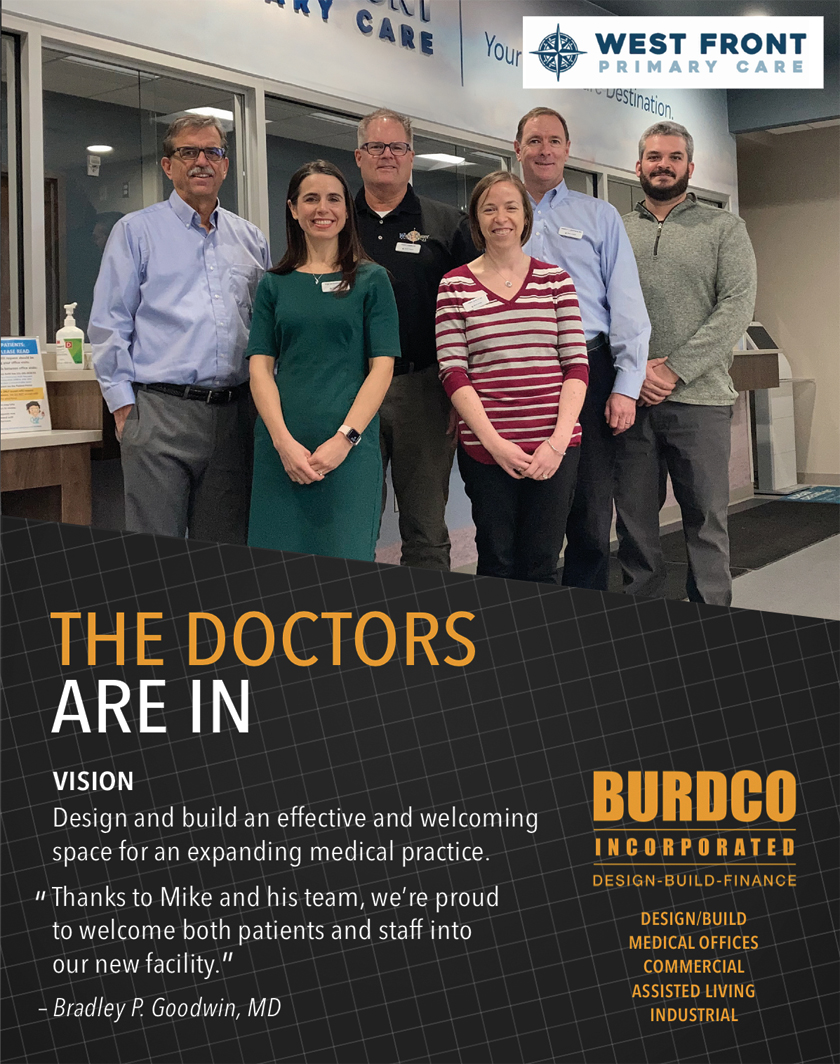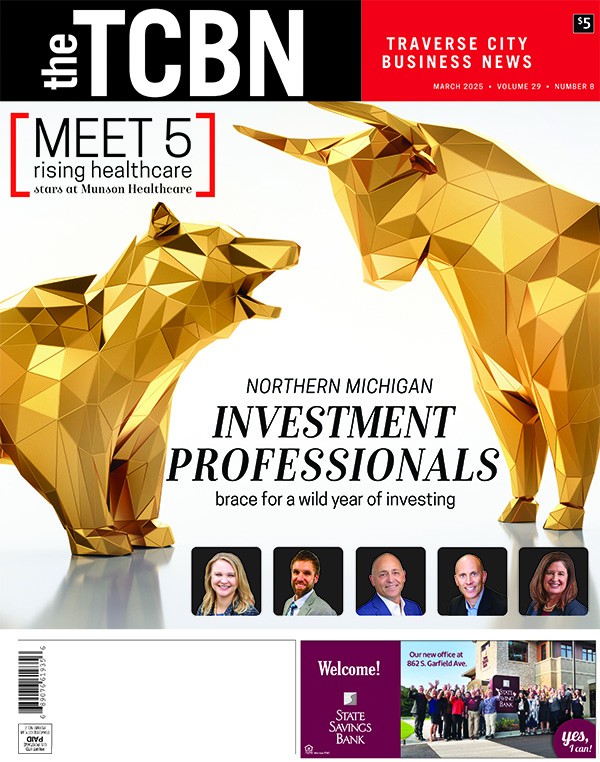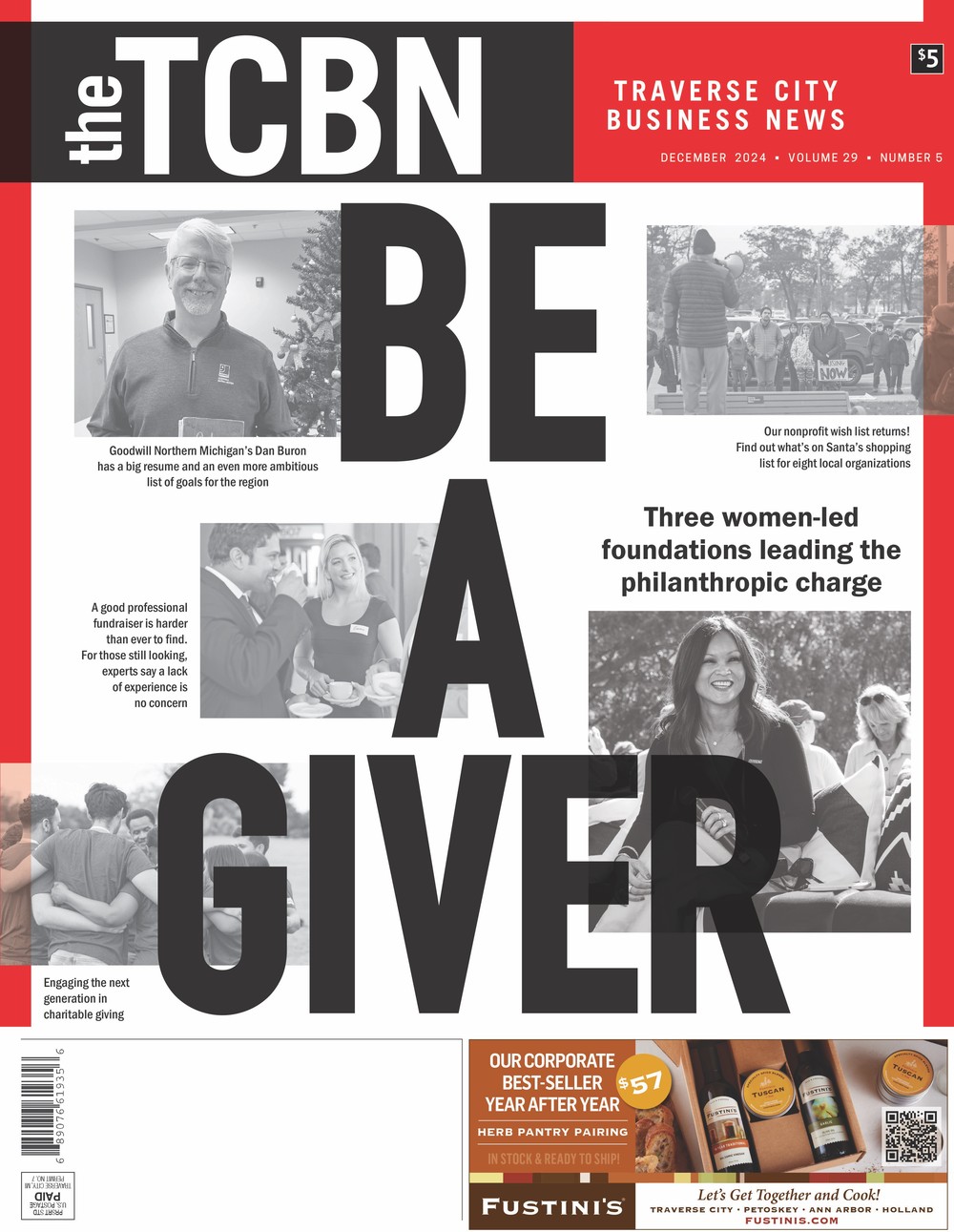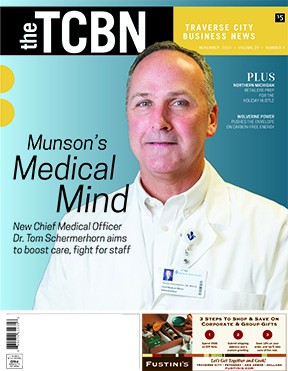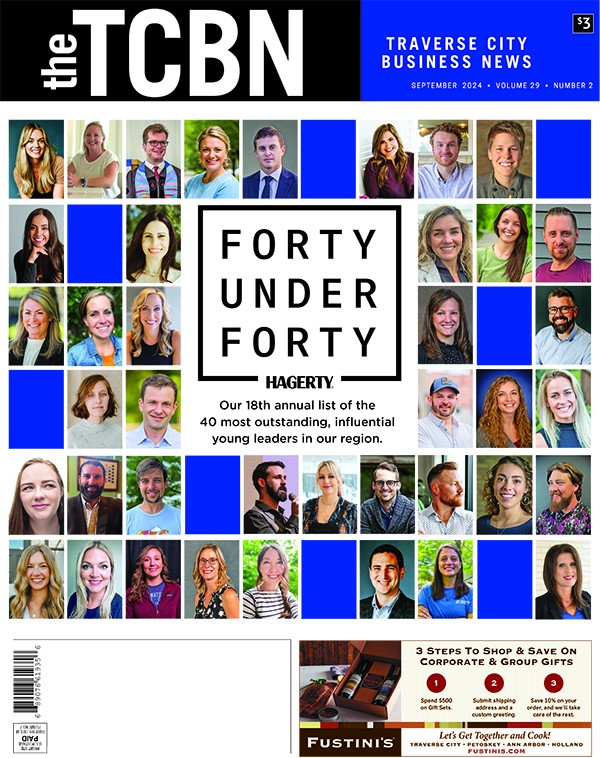Medicine Man: Munson's new chief medical officer talks patient care, staff support
November 2024
Dr. Tom Schermerhorn wants to be the voice of his fellow soldiers in the halls of leadership.
While he does indeed have a military background, the soldiers in this instance aren’t wearing combat uniforms. They’re in scrubs and face masks. They’re wearing stethoscopes or pushing gurneys. They are the men and women at Munson Medical Center who care for patients week in and week out.
Many things pile up on the plate of Munson’s chief medical officer (Schermerhorn assumed the role in August, replacing retiring Dr. Walt Noble), but Schermerhorn won’t soon waver in his desire to advocate for those out there on the front lines.
“I serve between the Munson administration and Munson medical staff, hopefully to communicate the interests and needs of that staff – not just their daily needs, but their strategic interests,” he said.
Schermerhorn, 56, is still “elbow-to-elbow” with his colleagues as a practicing neurosurgeon and is surgical director for Munson Neurosciences. This and his previous decades of experience mean he knows all too well the challenges faced by those in his line of work.
“Medicine is hard. Healthcare is a difficult career to be in, and there are days that are physically, emotionally or intellectually demanding that push to your edge in any one or all three of those realms,” he said. “I want to serve my colleagues and partners and help them accomplish goals and eliminate the barriers and difficulties they’re experiencing.”
West Point to Sixth Street
Schermerhorn is a Kalamazoo native who went to the United States Military Academy (commonly referred to as West Point) right out of high school, intending to head to medical school in short order.
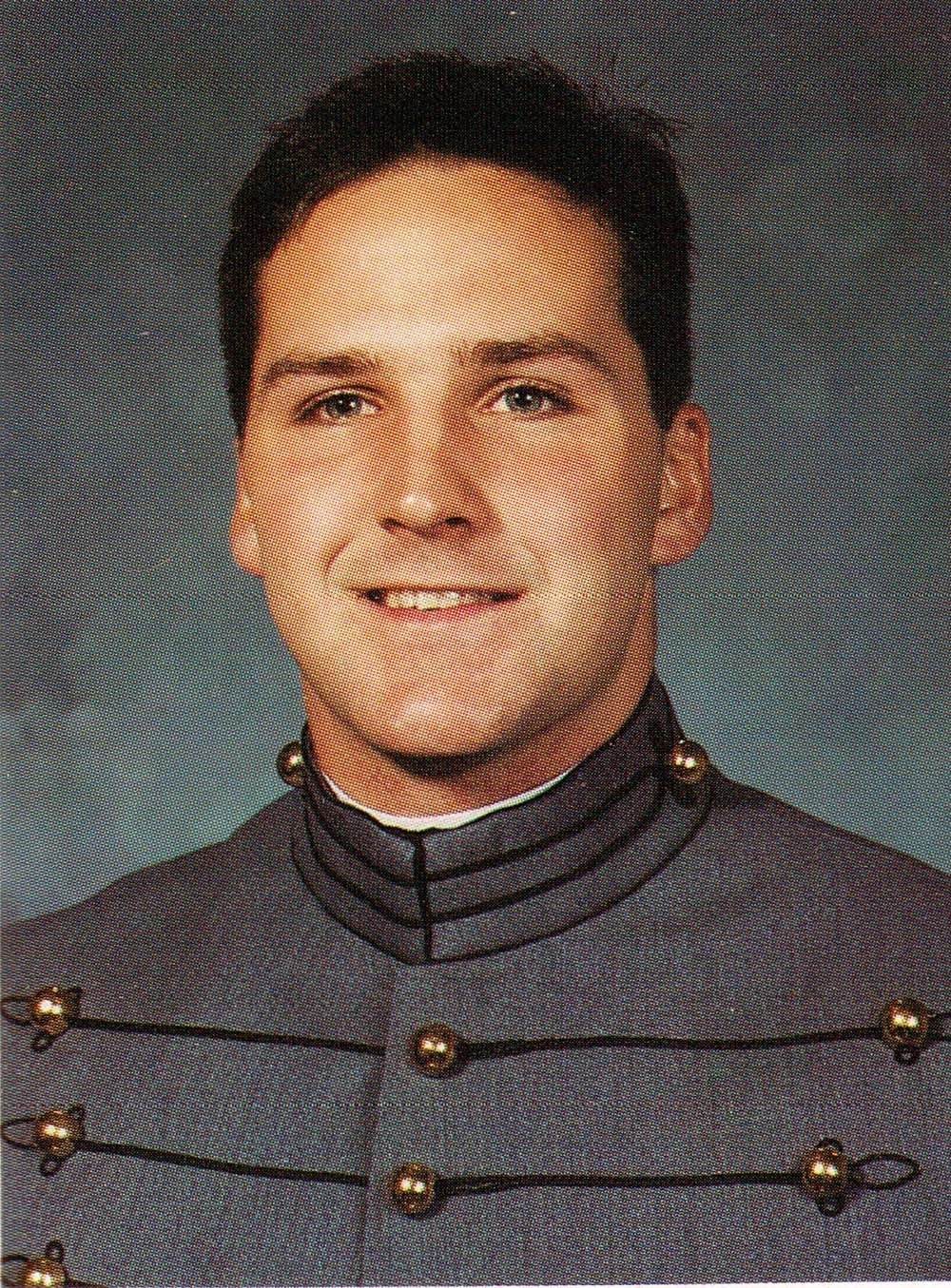
"I was dissuaded by some of the folks I met along that process," he said. "They said, ‘If you really think a medical career is the route you want to go, West Point's probably not the right path for you. We send 2% of each graduating class on to medical school, but that’s not our goal – our goal is to graduate combat leaders.’”
He bucked the trend and did end up in medical school, but only after he “drank the Kool-Aid” and dove head first into U.S. Army service. He was stationed in Europe and served as a platoon leader before heading to medical school after his honorable discharge.
To this day, he draws on the themes and values instilled during his military service. Things like paying attention to details, leading by example and putting nothing above the mission.
“Military service is a servant role. You’re subjugating your own interest for the good of the team, the betterment of the team,” he said. “And medicine is also the ultimate team sport. You put your patients’ interests ahead of your own, and as you evolve into other positions, especially leadership positions, it’s your patients’ interests and those of your team.”
He also sees a lot of similarities between the small-unit leadership he experienced as a platoon leader and now as a respected neurosurgeon.
“When I'm in the operating room, I may have an assistant across from me, a co-surgeon who's been to medical school and is highly trained. And then I'll have a nurse in the room, surgical technician, and anesthesiologist,” he said. "But we'll also have entry-level folks: technicians and aides. So it's a true team that's assembled; each person critical to the outcome of that patient.”
After the Army, he went on to Wayne State University for medical school, then to the prestigious Mayo Clinic in Minnesota for his residency and a stop at Wake Forest for a spine fellowship. He also recently obtained a master's in Healthcare Delivery Service from Dartmouth College.
“I loved my time at Wayne State. It was perfect for somebody that was a little bit older, like I was, because it wasn't sitting in a classroom. We were in the wards, we were contributing to patient care and patient outcomes,” he said. “It was very hands-on and really a great place to train.”
Schermerhorn arrived at Munson in 2003 and has been there ever since, raising three children in Traverse City and providing care (surgical or otherwise) for hundreds of patients over the years.
All systems go
Schermerhorn has been closely involved in several initiatives that have ramped up Munson’s care in recent years, including work to establish the hospital as northern Michigan’s only comprehensive stroke center.
Among the goals of that program was enabling local patients to stay in Traverse City for high-level care instead of seeking it out downstate. As CMO, Schermerhorn wants to push the envelope with this line of thinking.
“Our goal is to be able to provide the right care at the right place so that folks don’t have to leave home,” Schermerhorn said. “Considering the impact we were able to make with the growth of the neuroscience program, I want to have that same impact in the growth of other programs and the growth of our health system.”
While he’s all about supporting patients and coworkers, Schermerhorn’s new role will undoubtedly see him tugged in different directions as pressure from inflation, staffing and other business concerns have led to struggles for both patients and providers.
“We try to avoid thinking of medicine as a business, but there are bottom-line interests that we need to keep in mind,” he said. “We have no mission without a margin, so we need to act in a way that still puts the patients’ and our colleagues’ interests first while still being a good steward of our resources and delivering the best care in the most efficient manner.”
While they have enough to cover baseline staffing needs, Munson still needs to hire hundreds of people. Schermerhorn tips his hat to existing employees who have been grinding it out over the past five or so years in unprecedented times. This “particularly dedicated workforce” has been prepared for any challenges ahead, he believes.
“We went from pandemic right into a staffing or workforce crisis, and just as we started to emerge from the staffing crisis, now we have some financial constraints (with rising costs),” he said. “It’s been a trying time, but we were bumped and bruised and accumulated scar tissue in each of those events, and we’ve demonstrated resiliency and grit.”
Munson Healthcare is an independent nonprofit, and for years some people have wondered about its ability to remain independent in a sea of mergers and acquisitions. For his part, Schermerhorn isn’t worried about Munson getting swallowed up. He points to MHC’s regionalization efforts and expansions as evidence of a healthy system.
“I don’t feel like we’re vulnerable,” he said. “We’re doing good things financially…and we have significant plans for additional projects we plan to undertake.”
He's also aware of (but not overly threatened by) independent radiology centers like Novello Imaging that are nipping at Munson's heels from a business standpoint.
"Competition's a good thing. Competition keeps us sharp on our game,” he said. "If we're not delivering the most efficient, cost-effective care, then somebody's going to come in and try to do that. So this will keep us focused."



